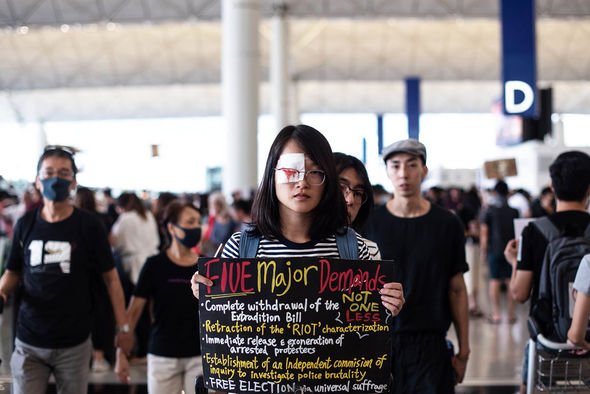
HONG KONG
While the confrontation has turned entirely on political issues, it’s important to remember the frustrations of Hong Kong’s young people are broader. They live in one of the most unequal places on earth, with an astonishing proportion of the economy controlled by a few billionaires who dominate real estate, retail, utilities, telecommunications, and critical industries. Measured by the Gini index, a common tool for summarizing inequality, Hong Kong looks more like sub-Saharan Africa than East Asia, with an income distribution significantly more skewed than those of Nigeria or Mozambique. Housing is dearer than in New York, London, or Singapore, yet the minimum wage is equivalent to about $4.75 an hour.
Indeed, one of the ironies of Hong Kong’s post-handover period is that, viewed strictly from the perspective of business, its capitalist values may now find their clearest expression across the border, in Shenzhen, Guangzhou, and Shanghai. Billionaires are a very poor guide to ordinary citizens’ lived experience, but in this case they’re probably instructive. The average age of mainland China’s five richest people is about 55; in Hong Kong, it’s almost 87.
What made Hong Kong special under the British, and gave it the uniqueness its citizens fear losing, was more than Western-style liberties. It was opportunity—and the belief that for those willing to work hard, there was nowhere better to dream big. It’s hard to make that case now. China’s leaders and Hong Kong’s protesters are never going to agree on politics. But if Beijing wants to find a way to drain their anger, it might start there.
— excerpt, Protesting Like It’s 2047 from Bloomberg Businessweek by Matthew Campbell P. 12
Hong Kong is due to come under complete mainland Chinese hegemony in 2047. That does not seems so distant. The mainland has been exerting influence upon the former British colony. The fundamental incommensurability between the English tradition of power shared, distributed by a democratic process and that of a hierarchical, top-down concentration of power in the tradition of the Communist tradition is becoming clear.
I think that each of these approaches to governance has strength and weakness. In this country we have a blend of Federalism and State devolved power, which albeit unstable, is a compromise worth working with.
Time will tell whether the many thousands who live in Hong Kong and the mainland government will be able to reach an accommodation. For the sake of everyone, including this writer in Batavia, I fervently hope they are able to do so.